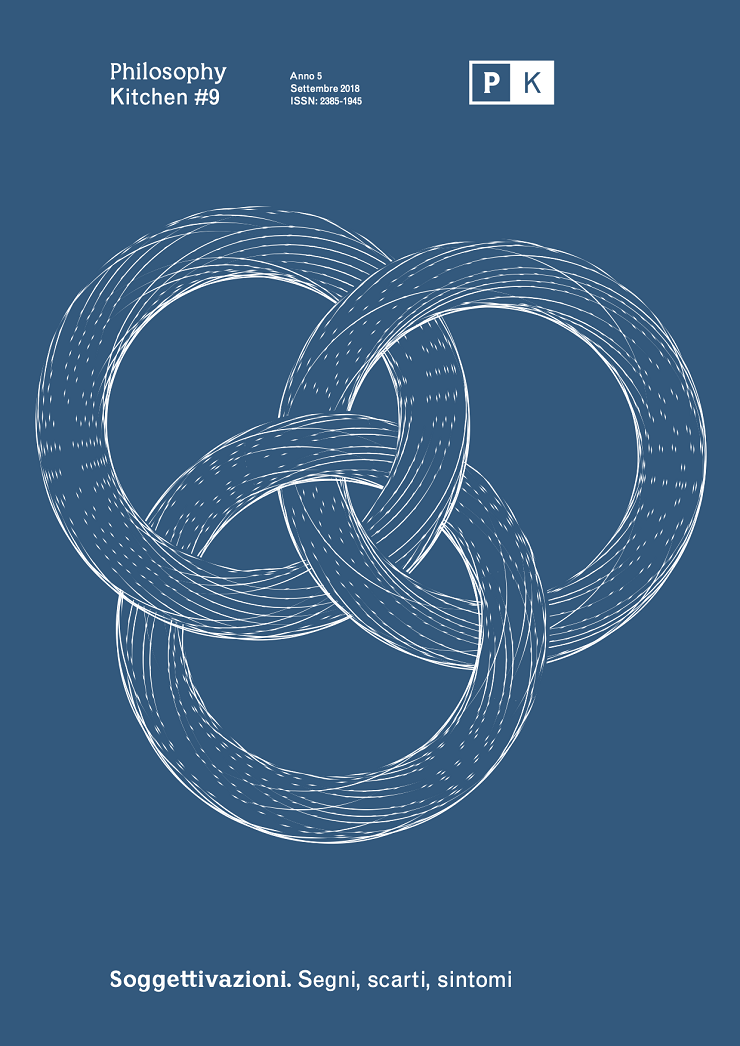Intrecci concettuali. Il soggetto tra Hegel, Kojève e Lacan
DOI:
https://doi.org/10.13135/2385-1945/3951Abstract
Following the articulation and development of the Lacanian theory of the subject, the article aims to highlight the similarities between Lacan’s idea of the subject and that which emerges from Hegel’s Phenomenology of the Spirit. Hegel’s Lacanian reading, however, has always been mediated by the interpretation of Kojève who, with his concept of the end of history, led the French psychiatrist to distance himself from the Hegelian dialectic before time. On the one hand, the symbol in Lacan is what leads us out of the imaginary impasse but, on the other hand, it is what opens the subject to a radical linguistic alienation. In the same way, the Hegelian Geist cannot be an absolute subject, nor absolute knowledge is configured as the ultimate stage of the dialectical movement: it is rather the immanent point of view that manages to capture the dynamic tension that permeates the relationship between Singular and Universal. Therefore, the real way in which Lacan distances himself from the Hegelian thought is not so much the question of the articulated subject starting from the symbolic order, but rather the issue of jouissance and the central tendency of the order of Real.






